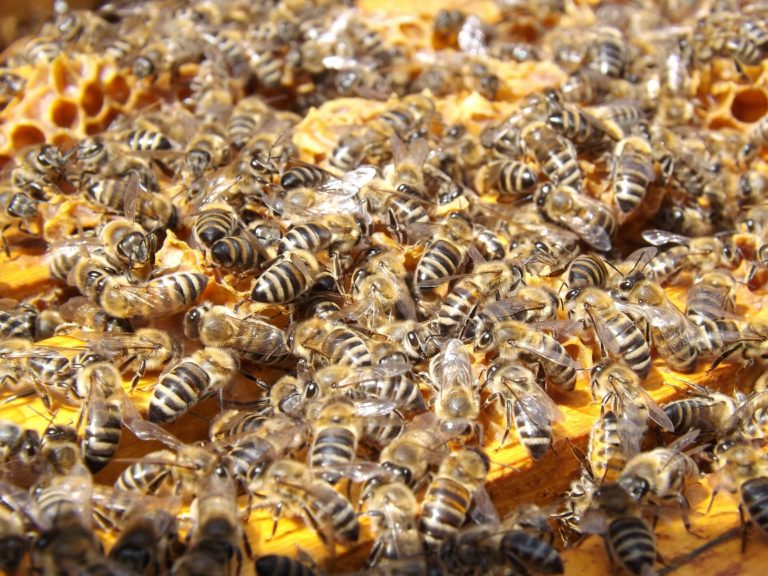Phrasal Verbs with UP: Tendencies and Examples
Good news: Phrasal verbs aren’t as hard as you think.
You may not realize it, but a phrasal verb’s particle gives us clues about its meaning.
For example, phrasal verbs with up often express the idea of creation. Cook up, bake up, make up, set up, draw up, type up, write up, and dream up are all phrasal verbs we use to talk about creating something.
Once you learn these tendencies in meaning, phrasal verbs become a lot more manageable.
Here are nine tendencies for phrasal verbs with up.
Also see these phrasal verbs with on.
Interested in learning idioms? If so, check out the idioms and phrasal verb section of the site.
Tendency #1: to increase, advance, or improve
Logically, it makes sense to use the particle up to communicate that something is increasing, advancing, or improving. These phrasal verbs don’t function literally, but it’s fairly easy to make sense of them.
If you save up money, you increase the amount of money you have.
“We haven’t gone on any trips lately. We’re saving up for a down payment on a house.”
If you dress up, you increase the level of formality of your clothes.
“Most of the people at Darlene’s church dress up for Sunday service.”
If something adds up, it means that small amounts increase until there is a large sum.
“All these miscellaneous fees on my cell phone bill add up to a really high cost.”
If you clean something up, you increase the level of cleanliness.
“We have guests coming in a half an hour. We need to clean up this mess.”
If you listen up, you increase your level of attention.
“Everybody, listen up! I have an announcement to make.”
If you fuel up, you increase the amount of fuel you have in your vehicle.
“Let’s fuel up before we hit the highway. This way we won’t have to stop.”
If something swells up, the swelling increases in size.
“I once got hit in the mouth with a baseball, and my lips swelled up to an enormous size.”
If you beef up on something, you strengthen or improve it.
“Law enforcement says that security should be beefed up for the event. Some important political officials are going to be there.”
If you stock up on something, you increase your supply of something.
“You can save money by stocking up on household goods when they are on sale.”
If you psych someone up, you increase that person’s readiness and/or confidence so that the person can complete a task.
“I try to psych myself up before my sales presentations.”
If you jazz something up, you increase its appeal or ability to generate interest.
“I think a few well-placed pictures would really jazz up your PowerPoint presentation.”
If you ramp something up, you increase its level of production.
“The plant is closed for two weeks during the holidays, so they ramp up production for a few weeks before they close.”
If you liven something up, you improve it by making it more exciting or lively.
“Let’s take a few beach trips to liven up our summer break.”
If you hurry up, you increase the speed at which you are doing something.
“Hurry up, kids! You’re going to miss the bus.”
If you bulk up, it means you increase your size and weight.
“Kevin’s son is playing linebacker for his high school football team. He’s trying to bulk up so he can compete.”
If you drum up business, you improve your sales or the likelihood that people will buy from you.
“Our radio advertising really helped drum up business.”
If you brush up on something, you improve your skills or knowledge of something that you have previously learned.
“Carlos is brushing up on his German. He goes to Berlin in two weeks.”
If you rack something up, you greatly increase the amount or number of something.
“This year we were able to rack up a ton of points on my credit card.”
If something piles up, it accumulates and increases in size or number.
“I feel like every time we resolve an issue, we have two new ones to deal with. They keep piling up.”
If you level up in a game, you advance to the next level.
“I’ve been trying to level up for hours, but I can’t get past this one really hard part in the game.”
If you tense up, your level of tension increases.
“I always used to tense up when I heard my teacher call my name in class.”
If a medical condition flares up, it means it worsens and increases in severity. We sometimes also use flare up to talk about disagreement, controversy and anger.
“My son’s asthma often flares up in the springtime.”
“Tensions have flared up after the president’s recent inflammatory remarks.”
If you read up on something, you increase your knowledge on that topic.
“I’m reading up on US immigration law. I am applying for a tourist visa, and my brother is applying for a student visa.”
If you talk someone/something up, you increase people’s opinion of that person/thing by talking in a positive way about that person or thing.
“Let’s talk up the party so more people will go.”
If you speak up, you increase the volume at which you are speaking.
“We have a bad connection. Would you mind repeating what you said and speaking up a bit?”
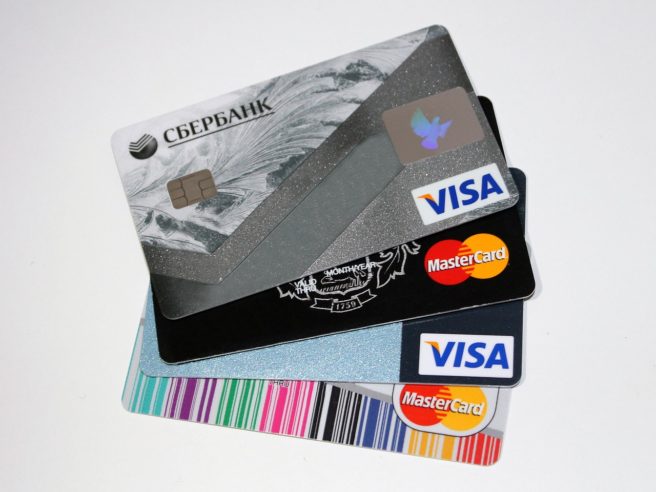
Tendency #2: to move upward
These phrasal verbs are fairly literal. They all involve something moving in an upward direction.
If you get up, you rise from a bed, chair, etc.
“It’s hard to get up when it’s 4:30 in the morning and 10 degrees outside.”
If you move up, you move to a higher level or position. We use this both literally and figuratively, and also with an object (move something up)
“Do you think you’ll be able to move up to a managerial position in the next few years?”
“You should move this paragraph up. I think it’s better at the beginning of your paper.”
If you sit up, you move yourself upward by going from a lying (or reclining position) to a seated position.
“After the medical examination, I sat up and asked the doctor some questions.”
If you lift something up, you lift it in an upward direction.
“Help me lift up the couch so I can clean underneath it.”
If you button something up, you button the buttons from the bottom all the way to the top of a garment.
“I was late for work, so I had to brush my teeth and button up my shirt at the same time.”
If you zip something up, you zip your garment all the way to the top.
“It was windy, so we zipped up our jackets and walked with our hands in our pockets.”
If you fill something up, you fill it all the way to the top.
“We should fill up the tank before we get on the highway.”
If you climb up, you move to a higher position.
“Can you hold the ladder while I climb up and replace the batteries in the smoke detector?”
If a piece of clothing rides up, it gradually moves up your body.
“These shorts are so uncomfortable. They keep riding up.”

Tendency #3: to completely finish something
These phrasal verbs are not interchangeable with their non-phrasal-verb counterparts. Adding the particle up adds the meaning “to completely finish.”
If you tell someone to eat up, you are telling them to completely finish their food.
“Eat up. We need to get back to the office for a meeting at one o’clock.”
If you tell someone to drink up, you are telling them to completely finish their beverage.
“Drink up, Tom. We’re going to another bar.”
If you finish something up, you completely finish it.
“Gary is going to meet us here as soon as he finishes up his paperwork.”
If you wrap something up, you completely finish it.
“It’s hard for some people to know how to politely wrap up conversations.”

Tendency #4: to make/create
There are quite a few phrasal verbs with “up” that communicate the idea of creation.
If you come up with an idea, you think of an idea, plan, etc.
“Our supervisor asked us to come up with some money-saving ideas for our department.”
If you set something up, you start or create something (such as a business, organization, program, or account).
“Mark’s professor told him that he should set up an email account with his first and last name.”
If you make something up, you create something (usually something intangible, e.g. a lie, a reason, an excuse, a rule, etc.).
“If you don’t want t go to the party, why don’t you make up an excuse and stay home?”
If you whip something up, you make something (usually food) very quickly.
“Judy’s family is extremely busy, so she doesn’t have much time to cook. She likes to make simple meals she can whip up in a few minutes.”
If you draw something up, you create a written document (such as a plan, proposal, or contract).
“I’ll have our lawyers draw up the contracts and we’ll send them over later today.”
If you dream something up, you think of a new (usually strange) idea.
“As a young entrepreneur, he dreamed up some crazy ideas for new businesses.”
If you write something up, you create a written document.
“The officer who witnessed the accident is writing up her report.”
If you type something up, you create a typed document.
“Paula is going to type up the minutes from our meeting and email them to everyone.”
If you cook something up, you devise something (usually negative) such as a plan, story, or scheme. We can also use cook up as a synonym for cook (but always with an object).
“You can’t just walk into work three hours late without saying anything. You’d better cook up a story.”
“If you’re hungry, I can cook something up.”
If you bake something up, you prepare food by baking it. We use the term as a synonym for bake (but always with an object).
“Why don’t we bake up some brownies for the meeting?”

Tendency #5: to divide into pieces or units
These phrasal verbs are not interchangeable with their non-phrasal-verb counterparts. Adding up adds the meaning “into many pieces” or “into little pieces.”
If you cut something up, you cut it into many pieces.
“I refuse to go into more debt. I just cut up all my credit cards.”
If you chop something up, you chop it into many pieces.
“Can you chop up this onion and add it to the pot.”
If you rip something up (or tear something up), you rip or tear it into many pieces.
“Jorge’s teacher caught him cheating, so she ripped up his test in front of the class.”
If you divide something up, you separate it into different categories or groups.
“The thieves divided up the money and fled the country.”
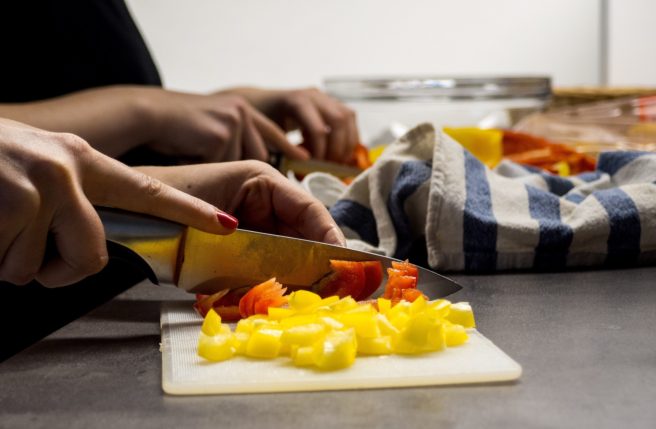
Tendency #6: to fix, get better, or reconcile
If an injury heals up, it gets better.
“Mark can’t believe how fast he healed up. He thought he was going to be injured for months.”
If you make up with someone, you become reconciled after a disagreement.
“Carmen bought flowers for his wife and apologized. It seems like they have made up.”
If you patch something up, you reconcile with friends, acquaintances, or family members and forget about a disagreement.
“You guys will never patch things up unless you swallow your pride and admit you were wrong.”
If you sober up, you get better by becoming less drunk or intoxicated. We can also use this with an object (sober someone up).
“You can’t sober up by drinking coffee. It’s a common myth.”
“Getting arrested seemed to sober him up.”
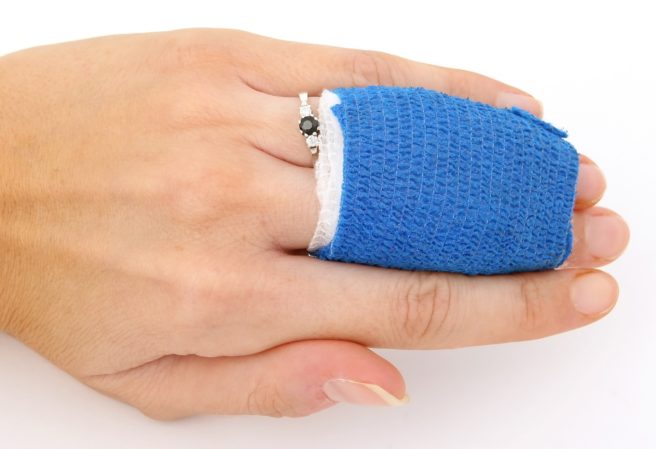
Tendency #7: to block or obstruct
The first three examples are often interchangeable. They all communicate that something is obstructed.
If something is blocked up, stopped up or clogged up, it is blocked or obstructed.
“In the fall, our gutters get blocked up by the falling leaves.”
“The drain in the bathtub is stopped up. Please don’t use it.”
“There is something wrong with our plumbing. The toilets in the house keep getting clogged up.”
If something (usually a hole) is plugged up, it is obstructed and nothing can pass through.
“Unless you’re going to plug up those holes, I think you need a new rowboat.”

Tendency #8: to join forces
These three phrasal verbs all refer to cooperation.
If you partner up with someone, you become partners with that person.
“My English teacher always has us partner up for speaking activities.”
If you team up with a person or group, you form a team with that person or people.
“Several top musical artists have teamed up to create the year’s best concert.”
If you gang up on someone, you join forces with other people in order to defeat, insult, or hurt that person.
“Kids have a tendency to gang up on their unpopular classmates.”
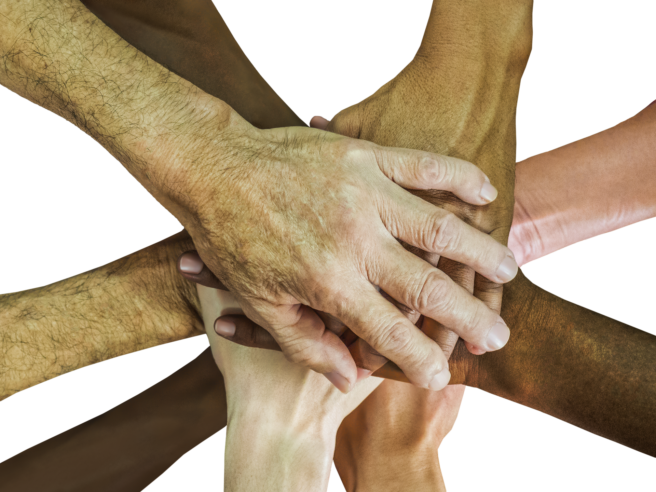
Tendency #9: to clean or organize
Finally, phrasal verbs with up often refer to cleaning or organizing.
If you clean up, you clean an area. We can also use this term with an object (clean something up).
“How about you cook and I’ll clean up after dinner?”
“It took the children three hours to clean up the kitchen.”
If you straighten up, you organize an area. We can also use this term with an object (straighten something up).
“We should straighten up before our guests arrive.”
“I can’t work in this office. I need to straighten it up before I can get anything done.”
If you mop up, you clean an area by mopping. We can also use this term with an object (mop something up).
“You can go change the baby’s clothes, and I’ll mop up this mess.”
If you sweep up, you clean an area by sweeping. We can also use this term with an object (sweep something up).
“Don’t forget to sweep up after you are done cooking.”
If you wipe something up, you wipe it until it is clean.
“My kid vomited in my car. I tried to wipe it up, but it’s still a mess.”
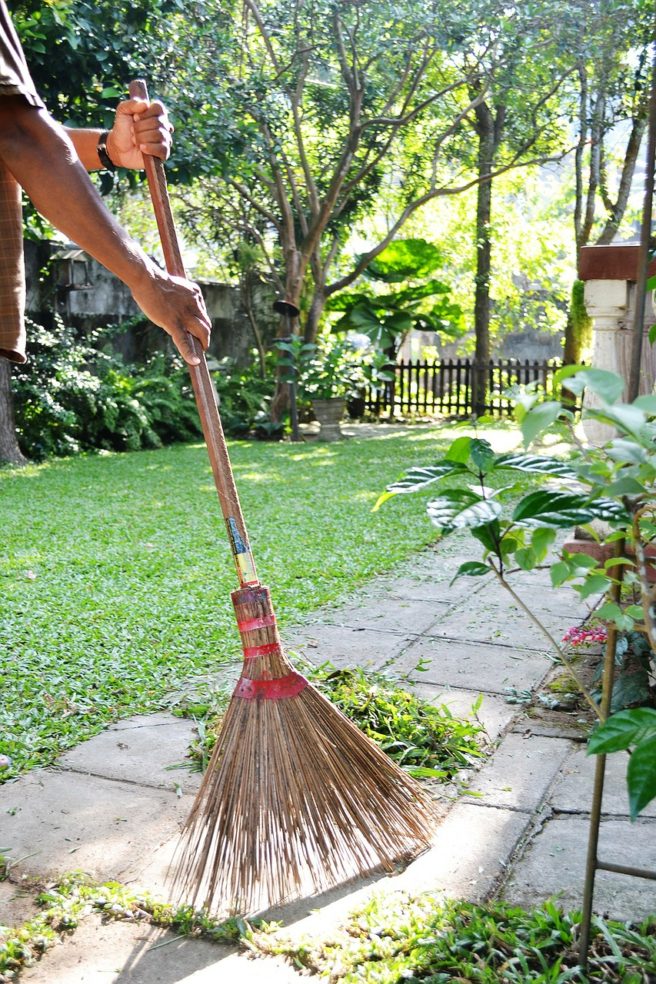
.
Of course, not all phrasal verbs with up fit into these neat little categories. It’s English, and there’s always a certain degree of chaos. (This is what makes English so fun, right?)
For more phrasal verb tendencies, see these phrasal verbs with on.
For more idiomatic expressions, see these articles on idioms and phrasal verbs.







